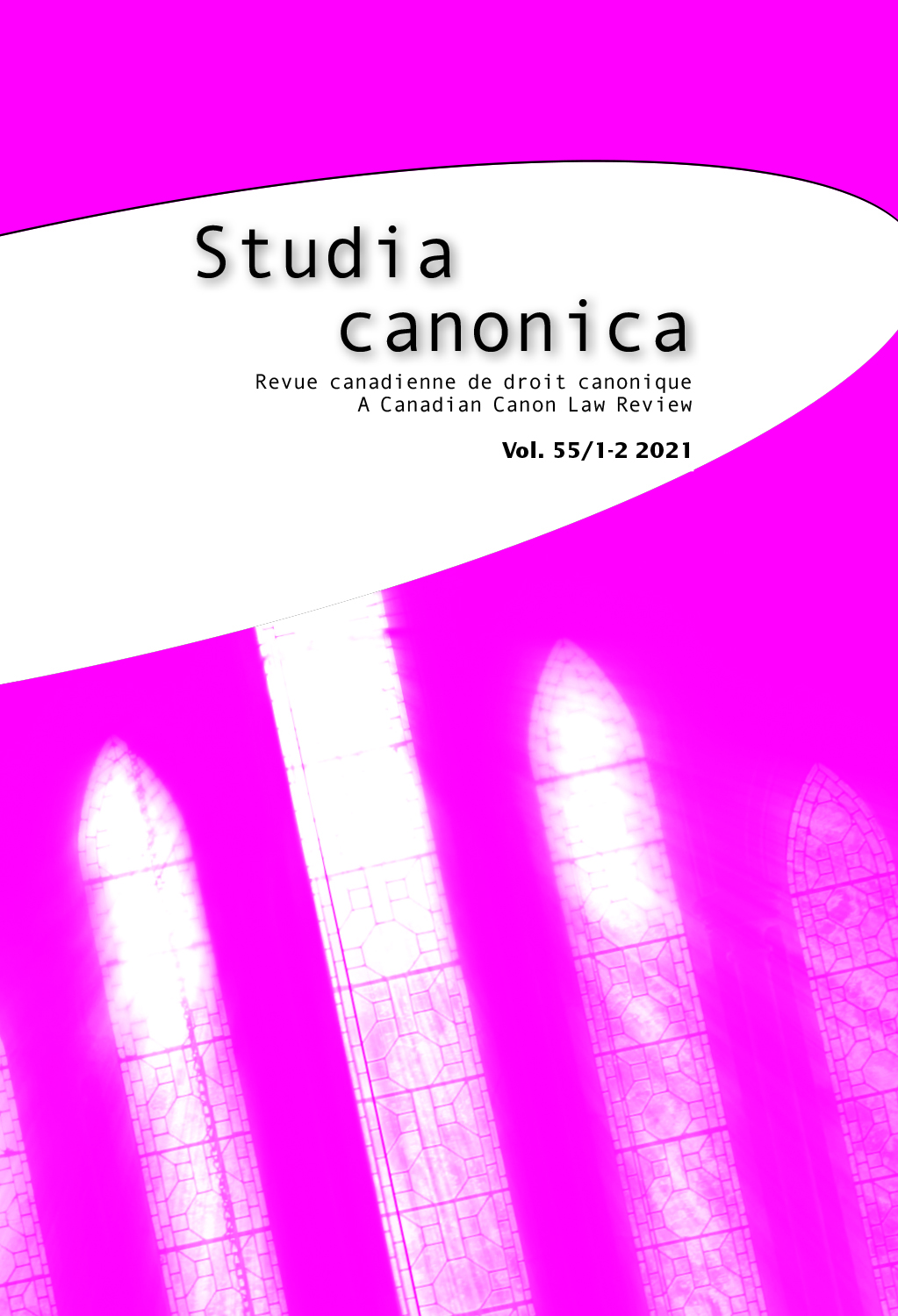 previous article in this issue previous article in this issue | next article in this issue  |

Preview first page |
Document Details : Title: Missio, Communio, Participatio: Toward a New Hermeneutics for Canon Law Subtitle: From a Codical Paradigm to a Constitutional Framework Author(s): PONZONE, Andrea Journal: Studia Canonica Volume: 58 Issue: 1 Date: 2024 Pages: 305-345 DOI: 10.2143/STC.58.1.3293407 Abstract : Pope Francis, by focusing his teaching office on the notion of synodality, has re-claimed the centrality of the doctrine of the People of God, positioning it once again as the main ecclesiological criterion for understanding all the documents of Vatican II. This shift has significant consequences for canon law, which is still based on the ecclesiology of hierarchical communion. After explaining how the separation between ecclesiology and canon law came to be, this study identifies the three key words of the 2021-2024 Synod on Synodality (mission, communion, participation) as the values that need to imbue and shape the canonical principles of norma missionis, norma communionis, and norma fidei. These three principles, being the normative elements of the material constitution of the canonical system, constitute the hermeneutical framework in which all ecclesial laws must be interpreted. This new hermeneutics will transform canon law, making it a privileged instrument for the reception of Vatican II. Le pape François, en centrant sa charge d’enseignement sur la notion de synodalité, a revendiqué la centralité de la doctrine du peuple de Dieu, la positionnant à nouveau comme le principal critère ecclésiologique pour comprendre l’ensemble des documents de Vatican II. Ce changement a des conséquences nécessaires pour le droit canonique, qui est encore basé sur l’ecclésiologie de la communion hiérarchique. Après avoir expliqué comment la séparation entre l’ecclésiologie et le droit canonique est apparue, cette étude identifie les trois mots clés du Synode 2021-2024 sur la synodalité (mission, communion, participation) comme les valeurs qui doivent imprégner et façonner les principes canoniques de norma missionis, norma communionis et norma fidei. Ces trois principes, qui sont les éléments normatifs de la constitution matérielle du système canonique, constituent le cadre herméneutique dans lequel toutes les lois ecclésiales doivent être interprétées. Cette nouvelle herméneutique transformera le droit canonique, en en faisant un instrument privilégié pour la réception de Vatican II. |
|


